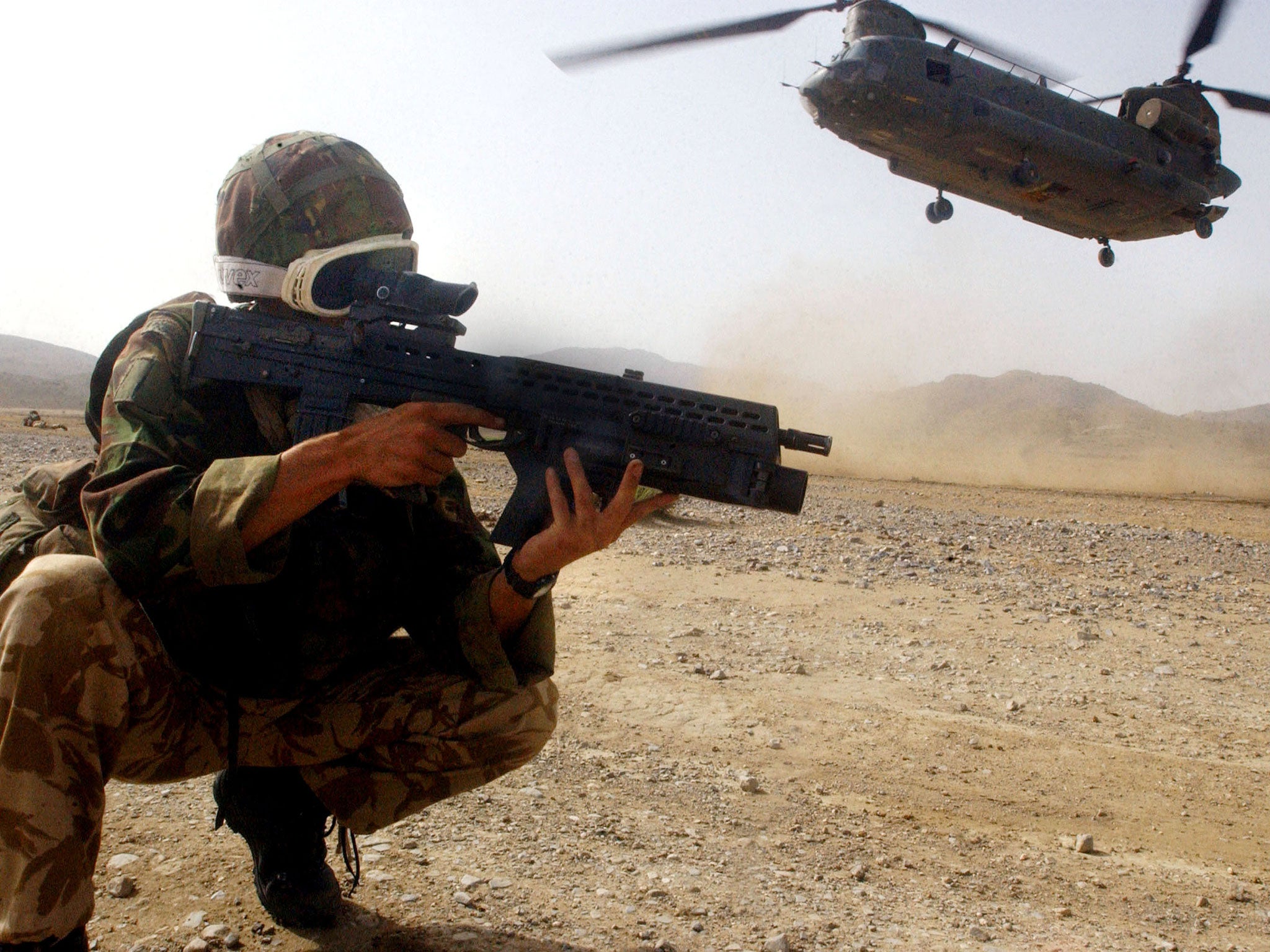Armed special forces troops 'disguised as homeless people' deployed to British cities to combat terror threat
Home Office says record number of people arrested for terror-related offences in past year

Your support helps us to tell the story
From reproductive rights to climate change to Big Tech, The Independent is on the ground when the story is developing. Whether it's investigating the financials of Elon Musk's pro-Trump PAC or producing our latest documentary, 'The A Word', which shines a light on the American women fighting for reproductive rights, we know how important it is to parse out the facts from the messaging.
At such a critical moment in US history, we need reporters on the ground. Your donation allows us to keep sending journalists to speak to both sides of the story.
The Independent is trusted by Americans across the entire political spectrum. And unlike many other quality news outlets, we choose not to lock Americans out of our reporting and analysis with paywalls. We believe quality journalism should be available to everyone, paid for by those who can afford it.
Your support makes all the difference.Police are arresting a record number of people for suspected terror offences in the UK as the security forces continue to increase efforts to combat the threat.
Armed special forces troops disguised as beggars and road sweepers have been deployed at key locations in London and other cities, they Daily Mirror reported.
Military sources told the newspaper the troops had been in place for “some time” to maintain covert surveillance and respond quickly to any future attacks.
“These soldiers provide a very good layer of immediate response at least to minimise casualties or stop injuries or deaths if they react quickly,” one said.
“The operation is police-led but the director of special forces is kept in touch with developments and is in touch with his men at all times.”
The Ministry of Defence said it would not comment on special forces operations, which have included bolstering police forces following the Manchester and London attacks.
New figures released on Thursday by the Home Office showed terror-related arrests in the 2016/17 financial year increased by almost a fifth.
Of 304 arrests, 108 resulted in a charge including 91 specifically for terror offences and 100 people were released without charge.
Another 88 people were released on bail pending further investigation and the rest faced alternative action by police.
The figure was the highest number on record since data collection started in September 2001.
It includes 12 people arrested as part of the investigation into the Westminster attack in March – all of whom were released without charge.
Khalid Masood’s car ramming and stabbing attack, which killed five victims, was followed by the Manchester bombing and London Bridge attack, while counter-terror agencies have foiled five alleged plots.
The Home Office figures showed “international terrorism” accounted for three-quarters of the terror-related arrests, while 16 per cent were logged in the domestic terrorism bracket.
The increase in arrests was driven by a sharp rise in the number of individuals from white ethnic groups held, up from 68 in 2015/16 to 113, and the number of British nationals arrested has passed 2,000 for the first time since current records began.
The report said 186 people remained in British custody for terror-related offences or domestic extremism at the end of March - an increase of 15 per cent compared with the previous year.
The scale of the threat facing the country has been laid bare with figures showing police and MI5 are involved in 500 investigations involving 3,000 individuals at any one time.
There are also 20,000 former “subjects of interest” whose risk must be kept under review, while experts have warned that the risk may be far greater than previously realised as the line between non-violent and violent extremism “blurs”.
Security services face questions over threat assessments following revelations that perpetrators in the Westminster, Manchester and London attacks were known over extremism but had not been detained.
Join our commenting forum
Join thought-provoking conversations, follow other Independent readers and see their replies
Comments